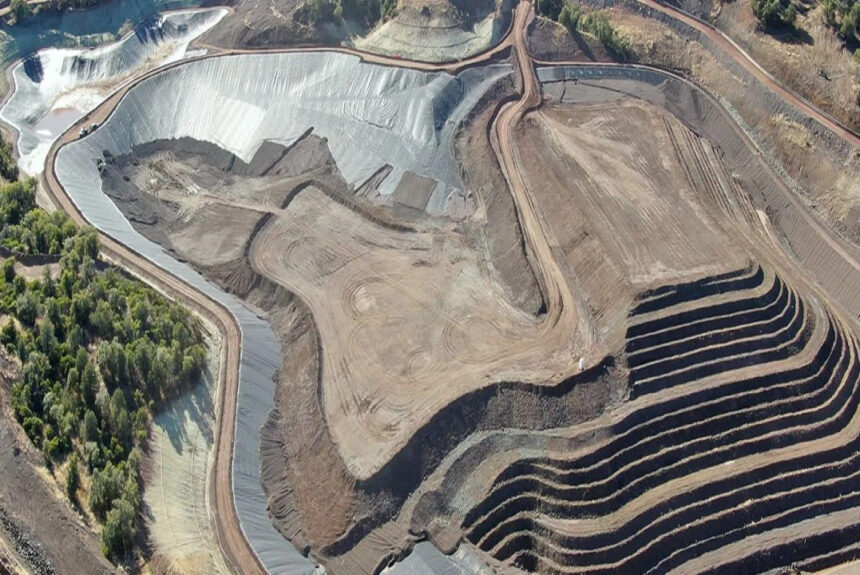President Biden didn’t hesitate to sign the Building Chips in America Act, which granted NEPA permitting exceptions for semiconductor projects. Congress clearly recognizes that the National Environmental Policy Act of 1969 (NEPA) has become a litigious permitting morass that has delayed proposed projects for years.
NEPA hampers more than just semiconductor projects. Critical minerals, transmission lines, pipelines, and conventional and alternative energy projects merit similar permitting relief to strengthen mineral and materials supply chains and increase energy independence. A recent Center of the American Experiment report shows that achieving net-zero emission reduction goals will be impossible without fixing the permitting process.
Critical minerals are the essential building blocks for alternative energy technologies, including wind turbines, solar panels, lithium-ion batteries, electric vehicles, national defense, infrastructure, and every economic sector. The Biden-Harris administration acknowledged in September that China has “cornered the market” for critical minerals, making the U.S. and allies dangerously dependent on China. The US would face shortfalls of 69 minerals in a conventional war with China, including 20 primarily controlled by China. Ms. Harris has included critical mineral stockpiles in her economic agenda to reduce these vulnerabilities.
Government mandates pushing consumers to EVs and changing the composition of the electricity grid are juicing demand for critical minerals. The International Energy Agency predicts insufficient copper supplies starting in about 2026. The mining industry will need $2.1 trillion in investments by 2050 to meet new mineral demands for alternative energy technologies.
Despite the Biden-Harris administration’s awareness of the dangers of relying on China for minerals, it prohibited a Minnesota mining project that would help the U.S. respond to increased demands for copper, cobalt, and nickel—three essential energy transition minerals. The proposed Twin Metals mine in northeastern Minnesota may never be built because the administration revoked two federal mineral leases in January 2022 and placed a 20-year mining moratorium on 225,000 acres of nearby lands in the Superior National Forest.
Permitting delays for domestic projects exacerbate the U.S.’s reliance on foreign countries for critical minerals. Drawn-out permitting processes also delay fossil fuels, nuclear, hydropower, wind, and solar development, infrastructure projects to build roads, transmission lines, pipelines, and proposed manufacturing facilities.
While a rigorous permitting process sets a high bar for environmental protection and safety, it is “crazy” that, in the words of U.S. Energy Secretary Jennifer Granholm, permitting can take upward of a decade with no guarantee of success. For instance, another Minnesota copper-nickel project, the NorthMet mine, was initially proposed in 2004—to have a crucial permit pulled in June 2023, nearly two decades later. The administration’s September assertion that it has “mobilized historic resources” to increase domestic critical minerals production must ring hollow to the Minnesota communities that would have benefited from the proposed mine and companies that need copper and nickel.
NEPA stands for the National Environmental Policy Act, but it does not mean the National Environmental Protection Act. Federal laws like the Clean Air Act and the Clean Water Act set standards for protecting our environment. Reforming NEPA would not reduce environmental protection because projects would still have to adhere to strict environmental protection standards in other federal laws. The U.S. is a global leader in balancing economic development with environmental stewardship, and that wouldn’t change if NEPA permitting became less burdensome.
Another obstacle to meeting the U.S.’ skyrocketing demand for critical minerals is the recent rules and regulations that put federal lands off limits for exploration and development and create severe conflicts between multiple uses of public lands. For instance, the Bureau of Land Management’s Western Solar Plan is pitting solar panels against other uses of lands on 31 million acres in 11 western states. BLM’s final Public Lands Rule creates a novel leasing process that threatens access to public lands by allowing third parties to acquire leases where development is prohibited. These policies are so harmful that Congress has introduced several measures to undo them.
The NEPA permitting process needs a complete overhaul to eliminate this problematic and sometimes insurmountable barrier to infrastructure, energy, and economic development projects. But in the meantime, the U.S. urgently needs more domestic critical minerals and energy production and new transmission lines—and loosening NEPA for these projects would help. Regardless of the outcome in November, reducing supply chain vulnerabilities, increasing domestic mineral and energy production, and expanding the transmission grid are in the country’s best interests.
Ms. Struhsacker and Ms. Montalbano coauthored the report “Mission Impossible: Mineral Shortages and the Broken Permitting Process Put Net Zero Goals Out of Reach” for the Center of the American Experiment. Ms. Montalbano is an energy policy fellow at American Experiment and a senior fellow at the Independent Women’s Forum Center for Energy and Conservation. Ms. Struhsacker is an independent environmental permitting and government relations consultant and one of the founders of the Women’s Mining Coalition.
The views and opinions expressed are those of the author’s and do not necessarily reflect the official policy or position of C3.
